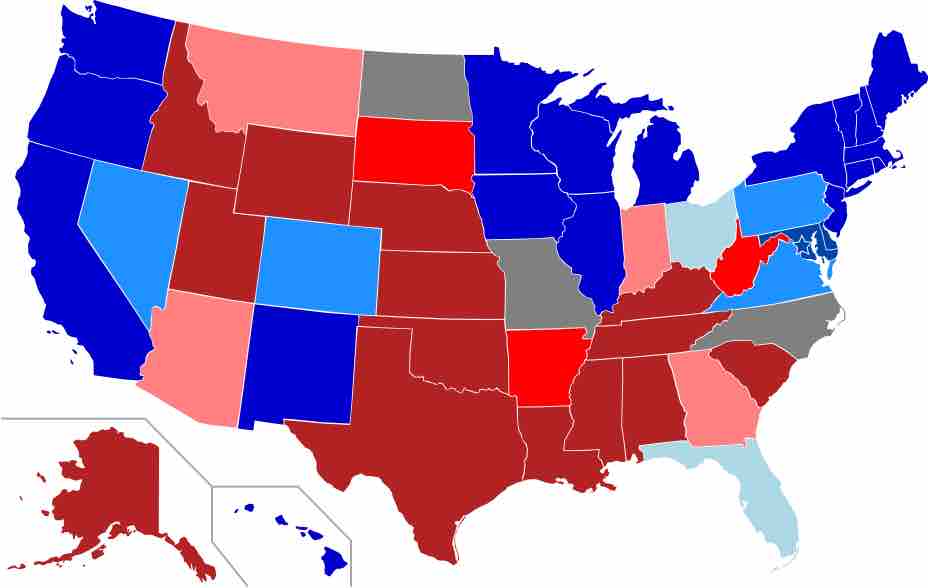In addition to hosting conventions and selecting candidates to run in presidential elections, political parties play key roles in organizing campaigns and elections. The Democratic National Committee (DNC) and Republican National Committee (RNC), in particular, are the central organizations devoted to campaign and political activity in support of the Democratic and Republican Party candidates. The DNC and RNC are permanent offices maintained by the Democratic and Republican parties to govern the daily operations of each party, as well as the special election and campaign operations conducted every four years. The DNC and RNC establish connections between followers of the Democratic and Republican parties with the respective leadership of each party. Such connections play a vital role in allowing presidential candidates to maintain a base of supporters they can depend upon during elections.
The Democratic National Committee and Republican National Committee connect voters with party leadership in a variety of ways. At the start of the preliminary election season, the DNC and RNC are responsible for establishing the rules for the caucuses and primary elections. These caucuses and primaries are usually not run by the DNC and RNC but instead by the state. Aside from the process of nominating a presidential candidate, the DNC and RNC's roles in selecting candidates to run on the Democratic and Republican Party ticket is minimal.
Later, the DNC and RNC supervise the presidential nominating conventions that officially declare the Democratic and Republican presidential candidates. Once a presidential candidate is chosen from each respective party, the Democratic and Republican National Committees provide crucial candidate support and party-building activities. Candidate support activities range from collecting polling data to running ad campaigns. Meanwhile, party-building activities often include voter registration and get-out-the-vote drives. The DNC and RNC also engage in coordinating fundraising and election strategies.

Polling Data
The DNC and RNC collect polling data to produce maps showing where candidates have leads in certain areas. This information is helpful in developing campaign strategies.